Gone But Not Forgotten
BY KRISTEN KWIATKOWSKI | PHOTOS BY SUSAN ANGSTADT
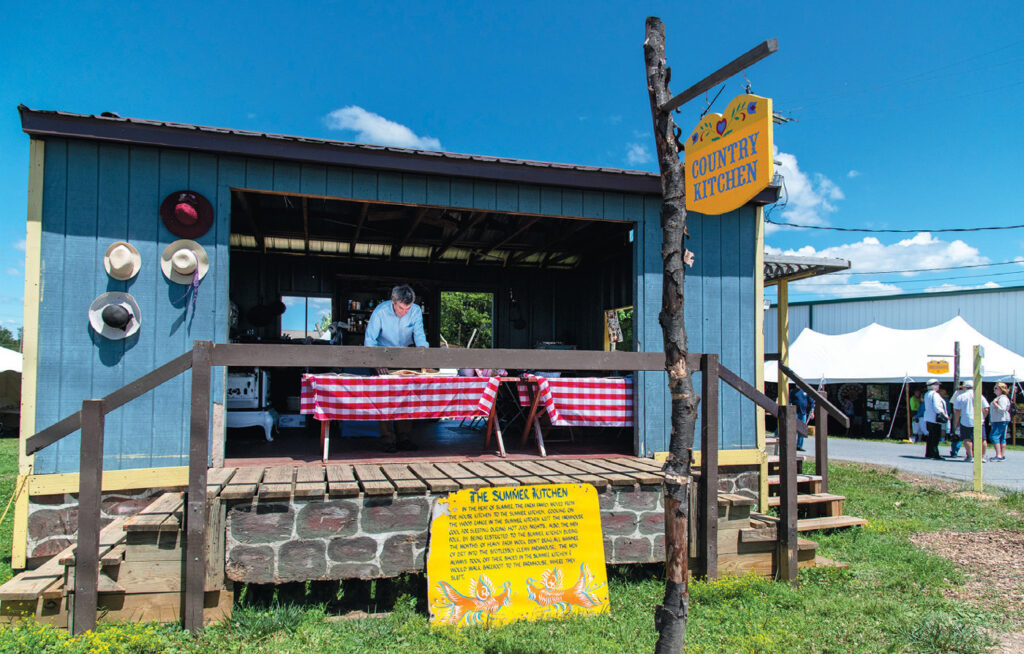
WALKING THROUGH THE KUTZTOWN FOLK FESTIVAL during the summer of 2024, I marveled at the rich cultural significance and abundance of offerings this Berks County festival presented to its attendees. Little did I know this would be the last time the Kutztown Folk Festival would invite guests from across Pennsylvania and beyond. During the fall, it was announced that the festival would cease operations due to financial constraints.
This news came as a shock to many. Not only did this festival seem well-attended, it provided a way for vendors to sell their hand-crafted products. Most importantly, however, it provided a way for people to look back on history—and also see the way this heritage lives on in the present day.
And then, of course, there was the food. Festival food is a way to uncover unique finds and feast on items that might not be familiar or available in your hometown. What becomes of that experience? What becomes of the history and heritage?
The good news is that you’ll still be able to find some of your favorite foods from the festival in the surrounding community. First, though, we have to look back a little bit to understand the present and why this annual gathering has deeply impacted the community.
THE EARLY DAYS OF THE FESTIVAL
Established in 1950, the Kutztown Folk Festival was created to celebrate the traditions, arts, and folklife of the Pennsylvania Dutch community. From handcrafted items to cuisine, this annual event included many enticing components. It drew in individuals from near and as far as New England, all who wanted to learn more about the Pennsylvania Dutch heritage.
William Donner, an anthropology professor at Kutztown University and Freyberger Professor of Pennsylvania German Studies, managed the seminar stage at the festival from 1997 to 2024. That was the place where festival attendees could learn about Pennsylvania Dutch customs, humor, and traditions.
“The festival had a significant impact on academia and how festivals were presented,” says Donner. “The founders were professors and, at that time, teaching at Franklin and Marshall College: William Frey, Don Yoder, and Alfred Shoemaker.”
“They wanted to develop the study of regional cultures and move ‘folk festivals’ from mostly musical events to a more holistic examination of all aspects of daily life, including cooking, farming, games, butchering, religion, medical curing, decoration, family life, and music and songs,” says Donner.
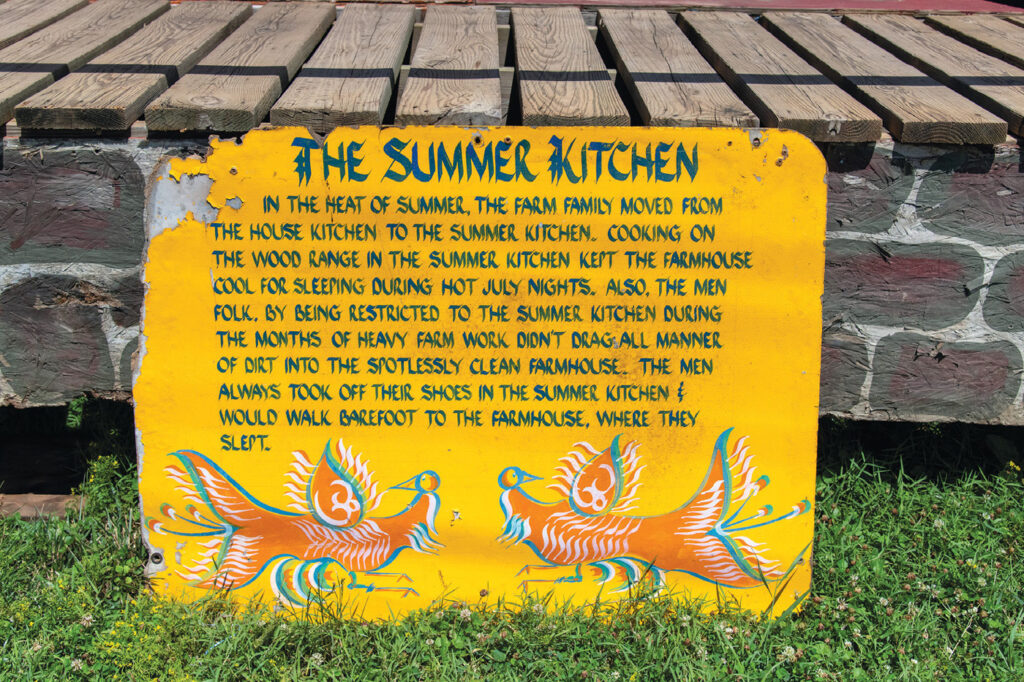
WHO ARE THE PENNSYLVANIA DUTCH?
But this begs the question: Who are the Pennsylvania Dutch? Are they Amish? What about Pennsylvania German?
“It’s complicated,” says Donner. “The terms Pennsylvania Dutch and Pennsylvania German refer to the same people, although there is some controversy about which is the preferred term, both among academics and the general community.
“They are the descendants of immigrants from Central Europe, most of whom settled in southeast Pennsylvania,” says Donner. “They belonged to different religious groups, including Lutheran, German Reformed (now United Church of Christ), Mennonite, Brethren, Amish, Schwenkfelder, Moravian, some Methodists, and a few Catholics.”
According to Donner, the festival was unique because it provided a method of preservation and a way to grow with the times, to some extent. “The Pennsylvania Dutch maintained a distinctive language and folk practices well into the 20th century and created new ways to express their identity, assimilating to mainstream American culture at the same time they invented different ways to express their unique identity,” says Donner.
“I think of the Folk Festival as one of the special ways they expressed their identity,” he says. It’s worth noting that the founders wanted the event to be as legitimate as possible. This meant including actual members of the Pennsylvania Dutch community, and invite them to showcase aspects of their work and daily life. Much of that, of course, involved food—along with crafts and presentations about culture and heritage.
THE COUNTRY KITCHEN: A HISTORICAL COOKING PRESENTATION
Donner points out the Country Kitchen event as the authentic place for Pennsylvania Dutch cuisine at the Kutztown Folk Festival. The kitchen served two truly authentic and delicious Pennsylvania Dutch meals a day to a very limited group.
Hosts Joyce Esser and her son, Matt, along with Peter Gottland, ran an authentic Pennsylvania Dutch cooking demonstration for a small group during each seating. Esser and his family have been mainstays, and relished the idea of sharing a bit of their family food and culture with other people over the years.
Seven sweets and seven sours
The special meal consisted of seven sweets and seven sours, a combination meant to balance out flavors.
A 1930s Prizer wood stove and antique cooking utensils helped create the meal. Red beet eggs, chow chow, pepper cabbage, apple butter, schmierkase (a soft, spreadable creamy cheese), beets, and corn salad family-style starters filled the table. For our main course, we enjoyed a homemade chicken pot pie, a no-crust variety consisting of chicken, carrots, peas, and potatoes. We also had handmade noodles crafted with eggs, then rolled and cut into shapes. Guests dined on the filling meal and sipped refreshing tea with hand-picked mint while learning about the Pennsylvania Dutch cooking traditions. For dessert, Moravian apple pie was a hit, pleasantly minimalist with apples, cinnamon, sugar, and pie crust.
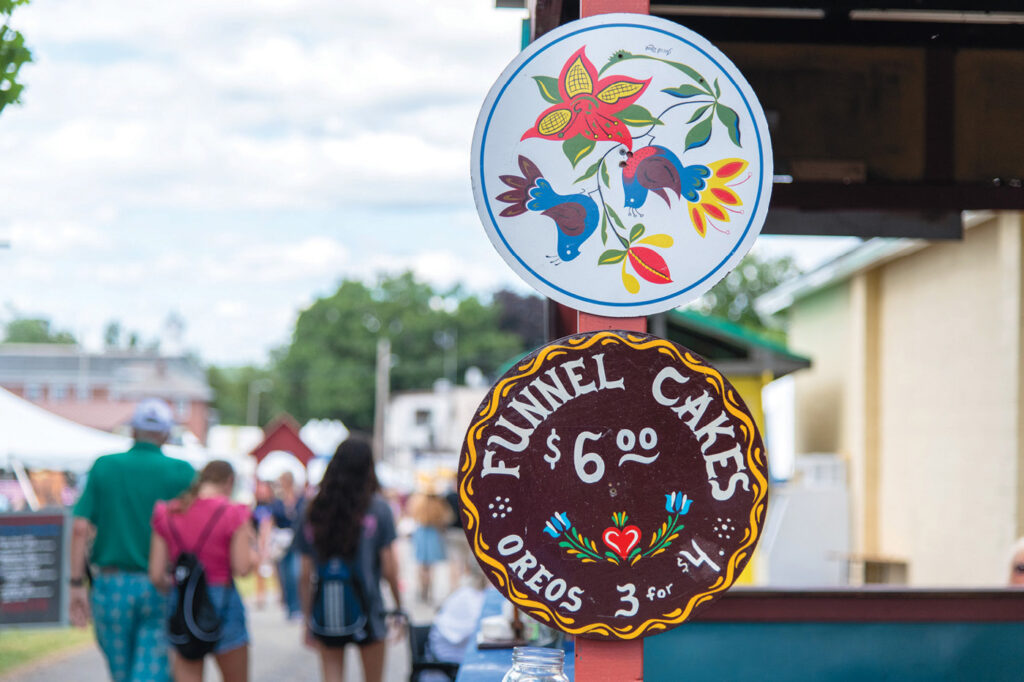
After consuming such a meal, it’s clear why this group of people honor food so deeply. Many were farmers, and it bears reminding that farming is hard work. “They appeared to like food that provided the calories and energy for hard work,” says Donner.
Outside of the Country Kitchen event, festival-goers could enjoy an array of Pennsylvania Dutch cuisine plus the typical popular festival foods. Some Pennsylvania Dutch foods offered are from the very beginning of the festival’s history. This includes shoofly pie, apple dumplings, fruit butters, bratwurst with peppers and onions, and funnel cakes. Other culinary offerings included flowering onions, hard cider, handcrafted doughnuts, soft pretzels, and coffee beverages.
There was even an apple butter–making demonstration. Festival attendees could try their hand at stirring the contents in the big copper kettle. Esser worked this demonstration while he and his family helped out at the Bauman’s fruit butter vendor table next to the demonstration area.
“A folklorist, Troy Boyer, once said on the seminar stage at the Folk Festival that in terms of assimilation, ‘food is the last thing to go,’” says Donner. “Some Pennsylvania Dutch foodways still exist among people who in most respects are highly assimilated into American culture.”
It’s important to note that food isn’t just about sustenance. This necessity is part of one’s culture, heritage, and identity. Generations pass down recipes and food traditions, and have a permanent place in our lives and those of future generations.
“At present, it is still possible to get traditional Pennsylvania Dutch food at special events such as occasional church dinners,” says Donner. “Also, people in this region still eat pork and sauerkraut on New Year’s Day and fasnachts on Shrove Tuesday.”
The Deitsch Eck Restaurant in Lenhartsville is a top dining spot for authentic Pennsylvania Dutch cuisine in the local area. Signature side dishes such as chow chow, pickled beets, and cottage cheese with apple butter are available. The scrapple bites appetizer is also a popular option: deep-fried scrapple pieces served with syrup and apple butter. In addition to the expansive menu, the restaurant offers a different Pennsylvania Dutch specialty entree each week, ranging from chicken pot pie to pig stomach. Additional locations for authentic Pennsylvania Dutch foods include Dietrich’s Meats and Country Store and the Allentown Fairgrounds Farmers Market.
FIND YOUR FAVORITE FESTIVAL FOODS
Although the Kutztown Folk Festival may have taken its last bow, you can still find many of the foods and drinks you might have fallen in love with. Pickles shouldn’t be hard to source. They’re definitely having a moment right now in the food world, the demise of this festival notwithstanding. And funnel cake is standard festival fare, thankfully. Three vendors who appeared at the festival are still very much in operation, their products easy to find. These include Bauman’s, Let’s Go Coffee Co., and Reading Soda Works.
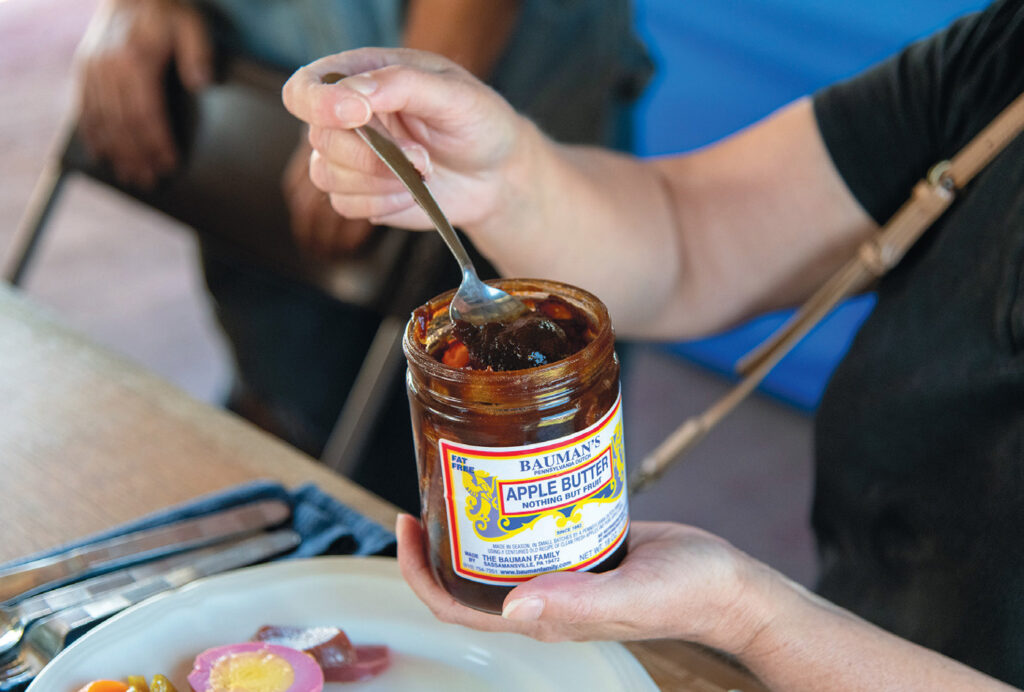
BAUMAN’S APPLE BUTTER, SASSAMANSVILLE
When people think of apple butter, the name Bauman’s likely comes to mind. The history of Bauman’s apple butter dates to 1892, when John W. Bauman started making apple butter for the community’s farmers. Apple butter was the byproduct of food economics. The original purpose was to use extra apples so they wouldn’t go to waste. Today, the Bauman family still makes this delicious apple butter, along with a wide array of other fruit butters, at its factory in Sassamansville with apples sourced from nearby fruit growers.
During the Kutztown Folk Festival, Bauman’s Pennsylvania Dutch apple butter was always a big hit. But the other butters were in high demand as well, such as pumpkin butter, honey peach, and pear butter, according to daughter-in-law Katlyn Bauman. Apple and pumpkin butter are the top sellers—in that order.
Apple butter is a delicious combination of fresh apples, pure apple cider, and sugar prepared into a smooth spread. Bauman’s also offers apple butter without the added sugar and sweetened with extra cider instead. Apple butter is an ideal spread on toast, topping for oatmeal, and yogurt. It can also be included in baked good recipes, such as apple butter muffins, apple butter oatmeal cookies, and apple butter pancakes.
“Bauman’s has been involved with the Kutztown Folk Festival on and off for the past 40 years,” says Bauman. “We love demonstrating how apple butter was made in the old days and giving samples of apple butter to people who have never tried it before.” People are usually surprised by how flavorful it is—especially because it has so few ingredients.
Even the apple butter sold without added sugar has a rich, sweet flavor. The additional cider brings out the natural sweetness of the sugar-free product.
“We’ll miss the Kutztown Folk Festival as an opportunity to connect with customers who wouldn’t hear about us otherwise,” says Bauman.
But Bauman distributes regionally, so it’s not too hard to find their products. You can visit their factory store, located about five miles outside Boyertown. You can also buy them at local stores such as Dietrich’s Meats, Windy Springs Farm Stand, and the Country Pantry booth at the Allentown Farmers Market.
“Also, for anyone interested in seeing demonstrations of apple butter cooking in a kettle over a fire, we demonstrate annually at the Goschenhoppen Folk Festival in August and the Apple Butter Frolic in October,” says Bauman.
LET’S GO COFFEE CO., EMMAUS
Festival goers who wanted a caffeine recharge could find this and more at the Let’s Go Coffee Co. mobile coffee trailer. Best of all, the coffee vendor offered a creative shoofly pie coffee. Known for its molasses filling and crumb topping, the dessert keeps with the Pennsylvania Dutch theme of the festival.
Shoofly pie coffee isn’t coffee topped with the pie, but a flavor. Let’s Go Coffee Co. buys its shoofly pie coffee from Maxa-tawny-based roaster Firehouse Coffee, which infuses it with a shoofly pie–flavored oil, resulting in a flavorful, slightly sweet taste.
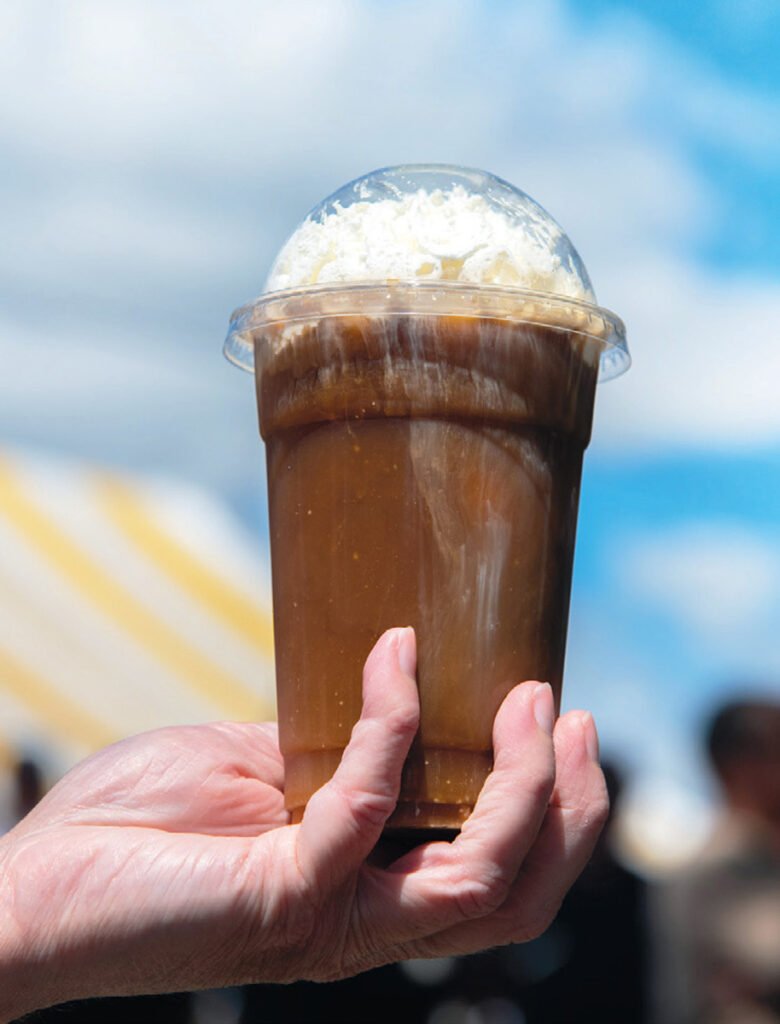
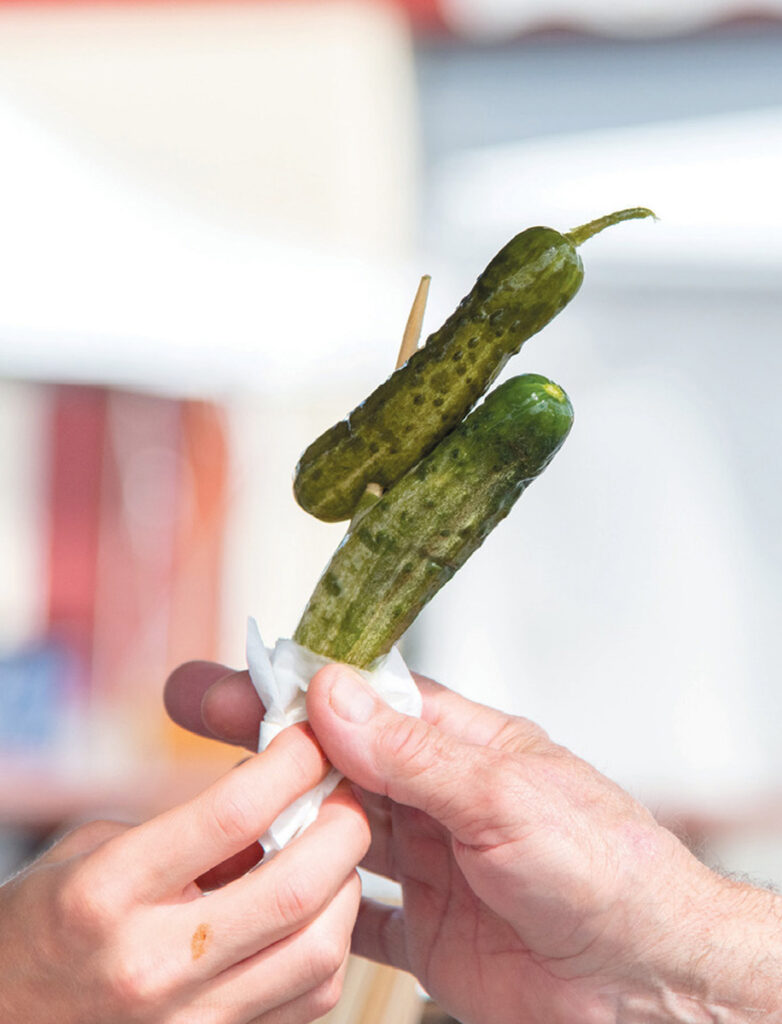
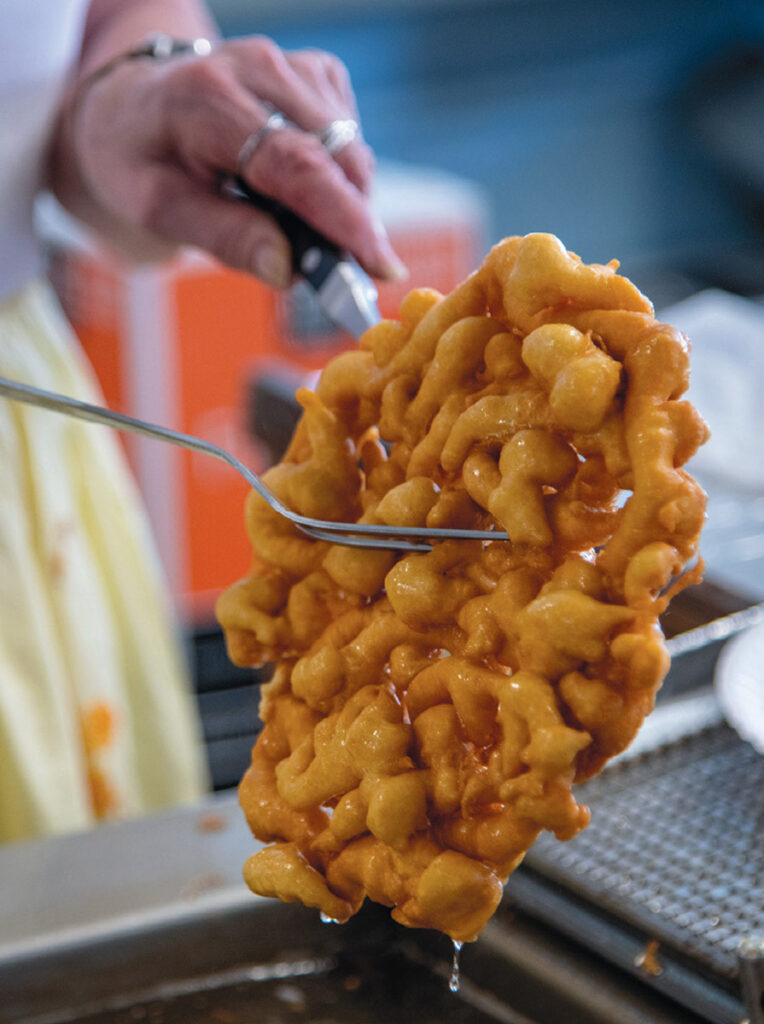
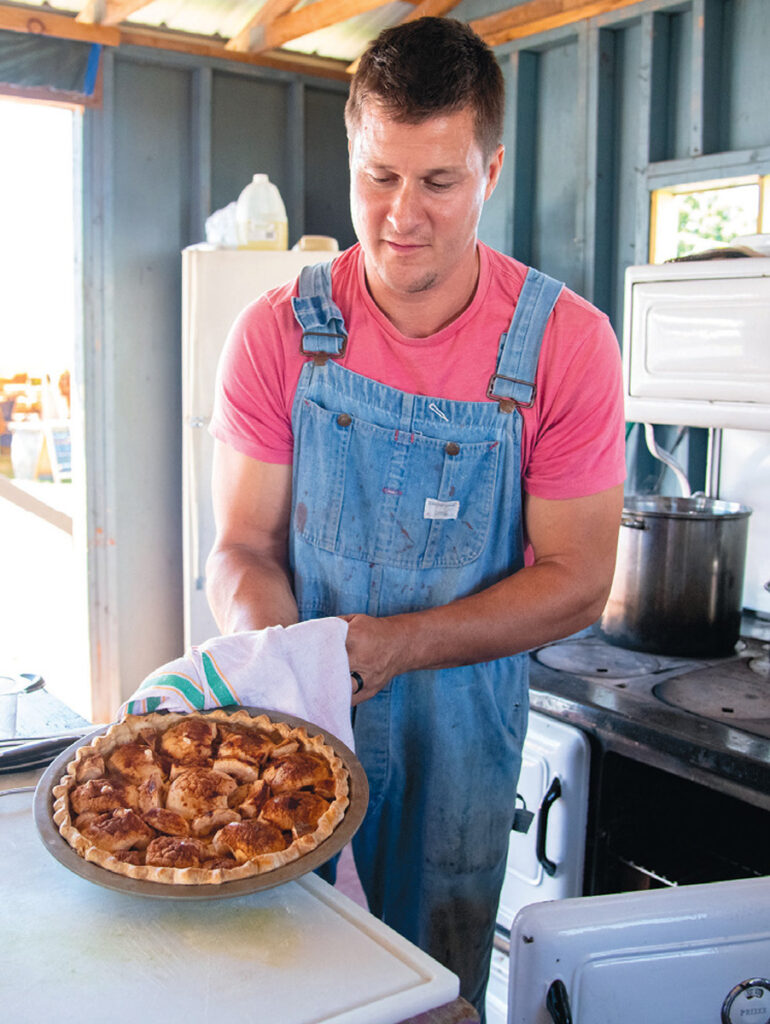
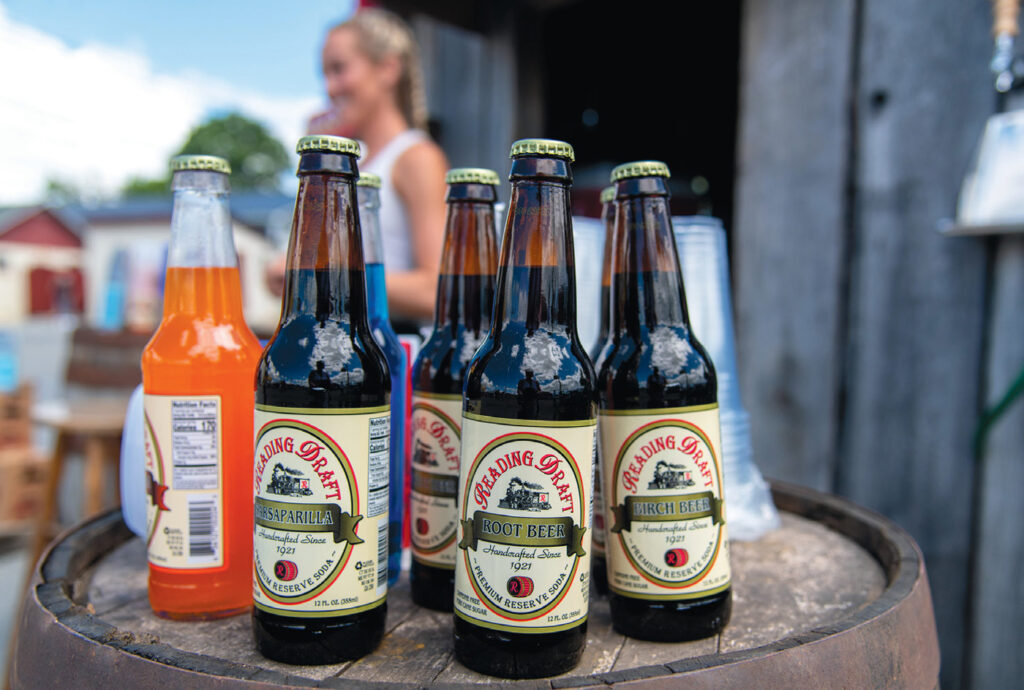
New customers and fans of Let’s Go Coffee Co. can still get their favorites by visiting the company’s brick-and-mortar location in Emmaus. Let’s Go Coffee Co. recently opened its first coffee shop that includes a certified gluten-free bakery.
In addition to the Pennsylvania Dutch–theme shoofly pie coffee and coffee floats sold at the festival, Let’s Go Coffee Co. brought its own gluten-free baked goods. This included shoofly pie muffins, blueberry muffins, chocolate chip cookies, and peanut butter chocolate chip cookies.
Owner Mandy Siess was happy to take part in the Kutztown Folk Festival.
“We were honored to be able to bring shoofly pie coffee to a group of people with such a deep-rooted Pennsylvania Dutch tradition,” says Siess. “The look on everyone’s face when we told them about our coffee was priceless.”
Customers seemed excited to grab their coffee beans to brew it at home.
“Our two top sellers were our shoofly pie coffee and our shoofly muffins,” says Siess. “We chose to offer these items because shoofly originated with the Pennsylvania Dutch community, making it a staple for that culture.”
The shoofly pie muffins contain molasses and crumb ingredients. They give the baked goods a shoofly pie flavor with a muffin consistency.
“All of our baked goods are gluten-free, so the gluten-free community was thrilled for a traditional Pennsylvania Dutch option.”
READING SODA WORKS, READING
As you walked around the festival fairgrounds, you might have come across the refreshing sodas from Reading Soda Works. This popular Berks County bottling company produces premium cane sugar soda—nothing made with high-fructose corn syrup. Best of all, the company has been using the same recipes since opening in 1921.
Festival attendees who wanted a bubbly beverage to sip as they perused the vendor offerings and listened to engaging stories at the seminar stage could choose a Reading Soda Works product, such as the Reading Draft sarsaparilla, root beer, birch beer, black cherry, or orange cream sodas.
This Kutztown event was near and dear to the soda team.
“It was a long-standing local festival rich in the area’s history,” says co-owner Braden Conner. “As a company that prides itself in small business and local involvement, it was something we wanted to be involved in. We are glad we could be a part of it for as long as we were.”
Fortunately, Reading Soda Works has a permanent presence in the local area with its retail store in Reading. The company offers the old-fashioned style sodas sold at the festival plus many other flavors. All of these are prepared using a slow carbonation process and packaged in glass bottles. The products can also be found in many of the local Redner’s Markets and Giant Food Stores.
Even though the gates to the Kutztown Folk Festival have closed for the last time, those individuals who have been fortunate enough to attend in years past will have many fond memories for years to come.
“It is the end of an era, but I hope that the crafts and history that the festival represented can live on in some other way,” says Esser.
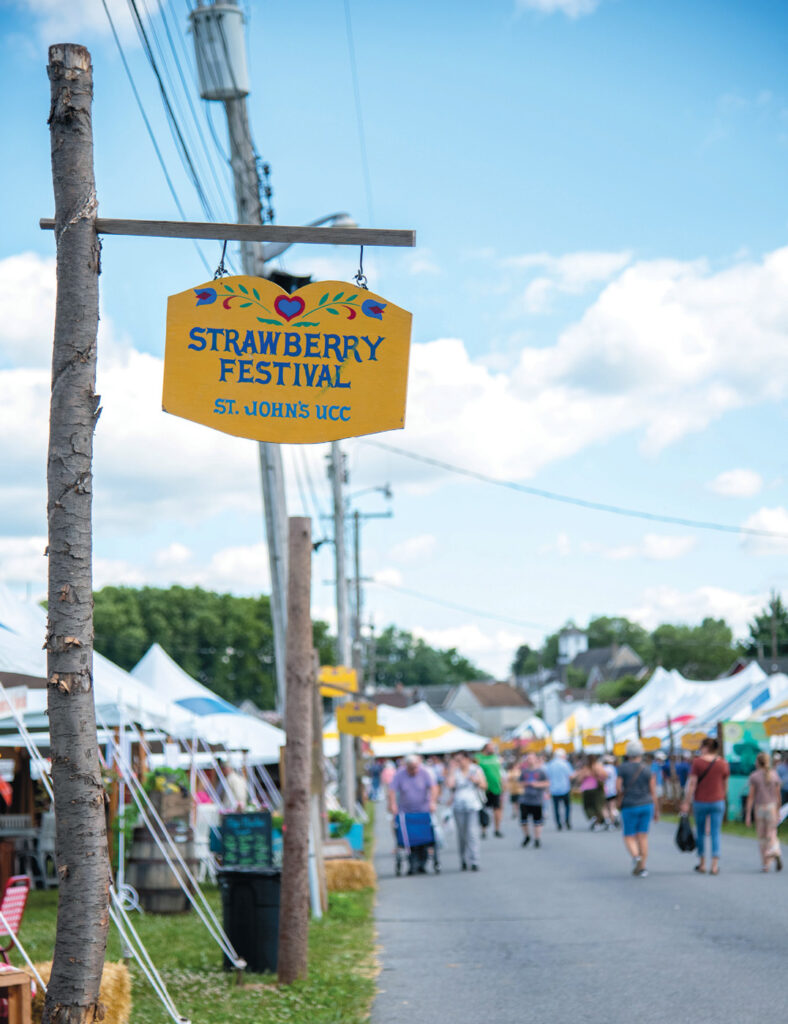
WHERE TO FIND YOUR FAVORITE FESTIVAL FOODS
Bauman’s Apple Butter
116 Hoffmansville Rd., Sassamansville
Instagram: @baumanfruitbutters
baumanfamily.com
Let’s Go Coffee Co.
358 Main St., Emmaus
Instagram: @letsgocoffeeco
letsgocoffeeco.com
Reading Soda Works
640 Gregg Ave., Reading
Instagram: @readingsodaworks
readingsodaworks.com
Deitsch Eck Restaurant
87 Penn St., Lenhartsville
the-eck.com
Dietrich’s Meats and Country Store
660 Old U.S. 22, Krumsville
dietrichsmeats.com
Allentown Fairgrounds Farmers Market
1825 Chew St., Allentown
Instagram: @allentownfarmersmarket
allentownfarmersmarket.com
Windy Springs Farm Stand
1970 John Fries Hwy., Quakertown
Instagram: @windy_springs_farm
windyspringsfarm.com



